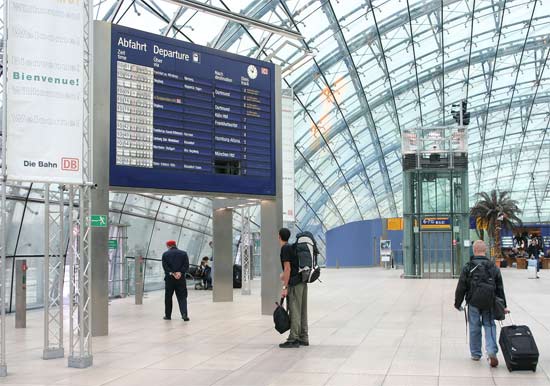 THE WORLD
THE WORLD « In Which We Trace Our Fear Of Flying »
 Thursday, October 18, 2012 at 11:31AM
Thursday, October 18, 2012 at 11:31AM 
Interims
by RACHEL SYKES
Years later, I traced my sometime fear of flying back to the journey between Frankfurt and St. Petersburg. I had never flown before and, besides, I was flying alone. But these facts did not account for the fear itself; I still suffered from an obliviousness which could pass for youthful bravery. Until we neared St. Petersburg, I felt for the first time the fervent calm of journeys spent mid-air — delicately balanced between the known and the next. It was only as we descended into the city that the plane jolted, forced to fly up at a harsh and sudden angle. Over the intercom, the pilot announced that we had been about to hit another plane.
On the next flight I took, out of Russia some months later, I sat beside a friend who was in fits of giggles. “What's so funny?” I asked him.
From his pocket, he drew a lighter, shaped like a gun. The Russian police found it less amusing as they searched us, bribed him, and threatened not to let us fly. Back on board, my friend, unashamed, spent the flight leaning across to me and, whilst knowing my nerves, periodically whispered: “Oh... I don't think it's supposed to make that noise.”
I travelled back to St. Petersburg seven years, almost to the day, since I had left it. Taking my first flight from London to Frankfurt, I held the faded St. Christopher's that my grandma had given me seven years previously. It was cheap, the coating was flaking, but I rubbed it back and forth and guided it round my neck, briefly wondering if I should pray, briefly wondering when I'd needed to pretend I was religious.
Slowly, my mind sifted through all the flights on which I had performed the same routine. As we circled Frankfurt, I tried not to think of the descent into St. Petersburg. And when I looked out of the window, focussing on what might identify the new country beneath us, I was distracted by how recognisable the woods around the city had become. I couldn't remember ever having seen them before, but the colour of the trees felt familiar. The woods were exactly the same, I just didn't have the memory.
With five hours to wait in Frankfurt airport, I could only watch as people walked around me. Listening to music didn't seem to help; it felt like the songs only dragged me backwards. When you listen to headphones daily, you invest each destination in the same, solitary beat. When leaving somewhere, and especially if waiting in terminals with machines that claim to fly, filling my ears with these sounds tugs me back too sharply amongst the places I have just left. Feet step in the rhythms of the route to work; my heart taps the pulse of the person I'm not supposed to be thinking of. Under headphones, you are too set in the problems which songs doctor in a day to day routine.

So here, in Frankfurt, I listen to people talk and watch how they hold their food. I think about how they place their feet on the ground in front of them and wonder how they pick their clothes in the morning. I steal their identities. There's a woman, to my left, who is reading Peter Pan in Spanish to her toddler, as her husband and other children sleep on the bench. I write a page about her, but only two sentences about the man, 41, and woman, 27, who sit cross-legged and in suits, iPads on their laps, accidentally spilling empty pill bottles and stethoscopes over the floor of McDonalds.
Some hours earlier, my housemates wrestle several pieces of work out of my suitcase. This is a holiday, they tell me; take fresh eyes and fresh reading. Do not take notes. Remember that this is not the same trip, it is not a return. There is nothing for you to achieve.
But somehow, the strangeness of the woods spins parallels between this point and every moment in which I have previously sat, aimlessly waiting. Remembering these interims seems like remembering nothing at all. The layovers in another language, with a currency I'd forgotten to get, with words I never intended to have. Sometimes I'd slept on top of my backpack in a country I'd forgotten by the time I woke up. Already worried about knowing the right Russian, I order coffee and forget the German for anything at all. Hurrying out of security, I leave my rucksack open and, reaching a table with my drink, spill a satchel-worth of pretentious notebooks and biographies over the sleeping children.
These interims typify the first world problems I point out to myself on a daily basis. And ordinarily, I worry less about them. But seven years after I took my first flight to Russia, it seemed difficult to grasp that I was returning by the same route. And besides, there is something about the sterility of airports that encourages self-analysis. I self-consciously keep scrapbooks and notebooks all year round, but when we are forced to pause we all generate parallels, we all look for patterns to reconcile memories with the accumulation of years.
In the airport, I write about the people who pass by me prematurely dressed for the beach. They wear bikini tops and straw hats and are already disappointed in the DJ booked for their arrival. I begin also to notice what is different about me. There may not be one cell of my body that is the same; I am certainly three dress sizes smaller and have four more piercings. There is one grey hair in my head, a head which has been dyed ten times more and has an extra bump on one side of it. In seven years, I have broken my own heart once, and had it broken for me once more. But I still wear the same dark and wonky glasses, and sit too often on the floor. I walk with my head slightly down and my mouth slightly open, a trait which my mum pointed out to me on the way to the airport in 2005.
Before the decision was made to go to Russia the first time, I had become obsessed with Russian novels. Morosely dragging a tattered copy of Anna Karenina around with me, mouth slightly ajar, I sat in pink flared trousers and read it for the whole of one summer. My unfalteringly Catholic grandmother noticed how slowly it took me to read. She told me that I had become involved in immoral practices - I caught her trying to swap it out of my school bag for her copy of Pride and Prejudice.
That summer I turned sixteen and changed schools. I still hadn't finished the novel by the time September rolled around. But that autumn, I met a girl in music class and we bonded over a shared and unlikely near death experience in which we had both swallowed marbles. Being prone to melodrama even at a young age, we had quickly, separately, accepted that day as our day to die, had uttered our final words and said a quick prayer. The marble had popped neatly and easily back into the palms of our hands. My friend remembers me dolefully unpacking my school bag at the beginning of the new term, attempting to cram Anna Karenina awkwardly back into the top. “I haven't finished it yet,” I said, at which point she claims that I extended a pointed finger ominously in her direction: “But I will.”

I'd always thought that if I could work out what took me to Russia in the first place then I would figure out a little more of myself. It seems, at least in part, to be a wilful belief that Russia is a home for eccentrics and that I could belong amongst them. In my mannered quest for an identity, I told my English teacher I would go to Russia, instead of university. With very little self-awareness, I was convinced that this would be shocking. She knew better and was, thankfully, used to ridiculous teenagers.
She laughed, and she said, “That is because Russia is the country of your dreams.”
When I changed schools that summer, it had begun to change my life. I had teachers who humored my stroppy temperament, who allowed and encouraged me to think, who let me be ridiculous and indulgent. But even by eighteen, when I left, I wasn't quite ready. Even at a new school, even with the encouragement to do what I wanted, I noticed how far I was behind. The people around me were richer than I was; they were cleverer, better read, better dressed, and thinner. Even as I started to want things for myself, it felt as though I was chasing other people's ambitions.
It's just a thought that catches up with me, on the floor of Frankfurt airport, as I think about how bright the trees around the city seem to be. My mum still remembers me as a child back then, hiding beneath a head of hair which one hairdresser would later tell me held twice as many follicles as a “normal person.” I was looking back over a suitcase twice my size, struggling to see under the weight of my fringe, and looking anxiously for someone I knew. But when I had passed through security seven years previously, I had felt so unafraid. I had figured out that I was about to go somewhere, to do something, which I had not inherited from the people around me. No matter how false this could only have been, as I sat and tried to remember the Russian for “maybe,” it seemed as if no time had passed at all.
Rachel Sykes is the senior contributor to This Recording. She last wrote in these pages about the road. You can find an archive of her writing on This Recording here. She tumbls here and twitters here.

"Boxing Night" - Frightened Rabbit (mp3)
"Home From War" - Frightened Rabbit (mp3)

 airports,
airports,  frankfurt,
frankfurt,  rachel sykes
rachel sykes 





























Reader Comments